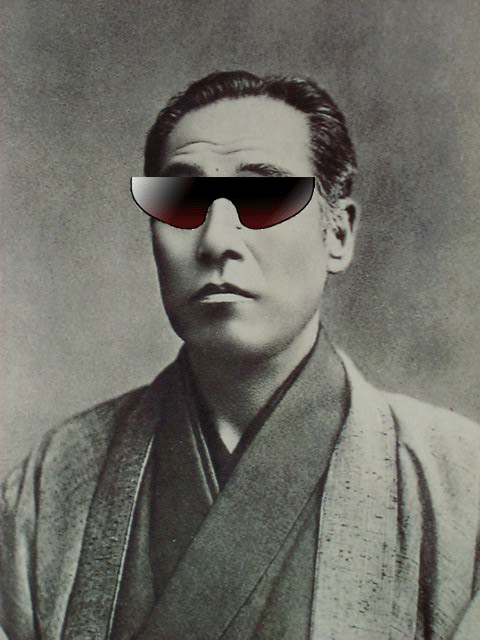民主主義・デモクラシー
A political thory of democracy

民主主義・デモクラシー
A political thory of democracy

デモクラシー(Democracy)のミニマムな定義は、民衆(デモス)が権力や政治的力(クラシー)を持つことであ る。しかし、これではデモクラシーとポピュリズムの区別がつかない。そのため、デモクラシーの経験的な意味で再定義すると、人民が直接、立法と審理を決定 する権限をもつシステムである「直接民主主義」と、人民の直接選挙による議員(代議員)の選出と、議員が人民の権限を代行して、立法や審理を担当し、か つ、役人を利用して政治を動かす(=行政)政治運用システムである「代表民主主義」の2つに大別できる。直接民主主義も、代表(制)民主主義も、人民(市 民)が、享受すべきものに、集会、結社、言論の自由、社会的包摂と平等の保障、市民権、投票権、市民と統治者が合意形成を通して政治を運用すること、リ コールなどの罷免権、生命と財産の保護、少数派の権利などがある。
☆ こ う考えるのはどうだろうか?——もともと民主主義などなかったのだ[あくまでも理想的な意味でのデモクラシーを意味するが].[だからこそ真の意味での] 民主主義はこの暗黒の時代における《これから》到達をめざす未来のイデオロギー的理念である. つまり民主主義の代替として宗教を嫉妬するのではなく民主主義という世俗宗教と従来のそれを共存すべきものだと——垂水源之介.
★
他方、トロツキーは、ソビエトに比べて議会制民主主義の欠陥をこう指摘する:ソビエトは労働者階級が集結して権力を行使する一方で、議会制民主主義は、教
育のない大衆に力を与えすぎることなく、むしろ大衆を受身化して、国家権力の機構の支配にゆだねる、と(ジジェク 2010:222)。
| Democracy (Greek:
δημοκρατία, dēmokratiā, from dēmos 'people' and kratos 'rule'[1]) is a
form of government in which the people have the authority to deliberate
and decide legislation ("direct democracy"), or to choose governing
officials to do so ("representative democracy"). Who is considered part
of "the people" and how authority is shared among or delegated by the
people has changed over time and at different rates in different
countries, but over time more and more of a democratic country's
inhabitants have generally been included. Cornerstones of democracy
include freedom of assembly, association and speech, inclusiveness and
equality, citizenship, consent of the governed, voting rights, freedom
from unwarranted governmental deprivation of the right to life and
liberty, and minority rights. |
民主主義(ギリシャ語: δημοκρατία,
dēmokratiā,
dēmos「人々」とkratos「支配」から)とは、国民が立法を審議・決定する権限を持つ(「直接民主制」)、あるいはそのための統治者を選ぶ(「代
表制」)政治形態である。誰が「国民」の一員とみなされるか、また、国民間でどのように権限が共有されるか、あるいは国民からどのように委任されるかは、
時代や国によって異なる速度で変化してきたが、時代とともに一般に、より多くの民主主義国家の住民が含まれるようになってきている。民主主義の礎には、集
会・結社・言論の自由、包括性と平等、市民権、被治者の同意、投票権、生命と自由に対する政府の不当な剥奪からの自由、少数派の権利などがある。 |
| The notion of democracy has
evolved over time considerably. The original form of democracy was a
direct democracy. The most common form of democracy today is a
representative democracy, where the people elect government officials
to govern on their behalf such as in a parliamentary or presidential
democracy.[2] |
民主主義という概念は、時代とともにかなり進化してきた。民主主義の原
型は直接民主制であった。今日、最も一般的な民主主義の形態は代表民主主義であり、議会制民主主義や大統領制民主主義のように、国民が自分たちに代わって
統治する政府高官を選出するものである。 |
| Prevalent day-to-day decision
making of democracies is the majority rule,[3][4] though other decision
making approaches like supermajority and consensus have also been
integral to democracies. They serve the crucial purpose of
inclusiveness and broader legitimacy on sensitive
issues—counterbalancing majoritarianism—and therefore mostly take
precedence on a constitutional level. In the common variant of liberal
democracy, the powers of the majority are exercised within the
framework of a representative democracy, but the constitution limits
the majority and protects the minority—usually through the enjoyment by
all of certain individual rights, e.g. freedom of speech or freedom of
association.[5][6] |
民主主義国家の日常的な意思決定は多数決が主流であるが、超党派やコン
センサスといった他の意思決定手法も民主主義国家には不可欠であった。これらはデリケートな問題に対する包括性と幅広い正当性という重要な目的を果たし、
多数決主義に対抗するものであるため、憲法レベルではほとんどが優先される。自由民主主義の一般的な形態では、多数派の権力は代表民主主義の枠内で行使さ
れるが、憲法は多数派を制限し、少数派を保護する。通常、言論の自由や結社の自由など、特定の個人の権利がすべての人々に享受されることを通してである。 |
| The term appeared in the 5th
century BC to denote the political systems then existing in Greek
city-states, notably Classical Athens, to mean "rule of the people", in
contrast to aristocracy (ἀριστοκρατία, aristokratía), meaning "rule of
an elite".[7] Western democracy, as distinct from that which existed in
antiquity, is generally considered to have originated in city-states
such as those in Classical Athens and the Roman Republic, where various
schemes and degrees of enfranchisement of the free male population were
observed before the form disappeared in the West at the beginning of
late antiquity. In virtually all democratic governments throughout
ancient and modern history, democratic citizenship consisted of an
elite class until full enfranchisement was won for all adult citizens
in most modern democracies through the suffrage movements of the 19th
and 20th centuries. |
紀元前5世紀、古典アテネをはじめとするギリシャの都市国家に存在した
政治体制を表す言葉として登場し、「エリートの支配」を意味する貴族制(ἀριστοκρατία,
aristokratía)と対比して「民衆の支配」を意味する。西洋の民主主義は、古代に存在したものとは異なり、一般に古典期アテネやローマ共和国の
ような都市国家に起源を持つと考えられている。古代末期の初めに西洋でこの形式が消滅するまで、自由男子人口の様々な制度と程度が観察された。古代・近現
代を通じて、事実上すべての民主主義政権において、民主的市民権はエリート層で構成されていたが、19世紀と20世紀の参政権運動を通じて、ほとんどの近
代民主主義国家ですべての成人市民が完全に権利を獲得するようになったのである。 |
| Democracy contrasts with forms
of government where power is either held by an individual, as in
autocratic systems like absolute monarchy, or where power is held by a
small number of individuals, as in an oligarchy—oppositions inherited
from ancient Greek philosophy.[8] Karl Popper defined democracy in
contrast to dictatorship or tyranny, focusing on opportunities for the
people to control their leaders and to oust them without the need for a
revolution.[9] World public opinion strongly favors democratic systems
of government.[10] |
民主主義は、絶対王政のような独裁体制や寡頭政治のような少数の個人が
権力を握る政治形態と対照的である。カール・ポパー(Karl Popper,
1902-1994)は、民主主義を独裁や専制と対比して定義し、国民が指導者をコントロールし、革命を必要とせずに指
導者を追放する機会に焦点を当てた。世界の世論は、民主主義的な政治体制を強く支持している。 |
"An Economic Theory of Democracy is a treatise of economics written by Anthony Downs, published in 1957. The book set forth a model with precise conditions under which economic theory could be applied to non-market political decision-making. It also suggested areas of empirical research that could be tested to confirm the validity of his conclusions in the model. Much of this offshoot research eventually became integrated into the Public Choice School. Downs' theory abstains from making normative statements about public policy choices and instead focuses on what is rational, given the relevant incentives, for government to do."- An Economic Theory of Democracy(Wiki)
『民
主主義の経済理論』(An Economic Theory of
Democracy)は、1957年に出版されたアンソニー・ダウンズ著の経済学論考である。この本は、経済理論を非市場的な政治的意思決定に適用するた
めの正確な条件を備えたモデルを提示した。また、このモデルにおける彼の結論の妥当性を確認するために検証可能な実証研究の分野も提案している。この分派
研究の多くは、最終的に公共選択学派に統合された。ダウンズの理論は、公共政策の選択について規範的な記述を避け、その代わりに、関連するインセンティブ
を与えられた政府が何をすることが合理的であるかに焦点を当てている。
| 1) A two-party democracy cannot provide stable and effective government unless there is a large measure of ideological consensus among its citizens. | 1) 二大政党制の民主主義は、その市民の間に相当な程度のイデオロギー的合意が存在しない限り、安定した効果的な政府を提供することはできない。 |
| 2) Parties in a two-party system deliberately change their platforms so that they resemble one another; whereas parties in a multi-party system try to remain as ideologically distinct from each other as possible. | 2) 二大政党制では、政党は互いに似通うよう意図的に政策を変更する。一方、多党制では、政党は可能な限り互いにイデオロギー的に異なる状態を維持しようとする。 |
| 3) If the distribution of ideologies in a society's citizenry remains constant, its political system will move toward a position of equilibrium in which the number of parties and their ideological positions are stable over time. | 3) 社会の市民におけるイデオロギーの分布が一定であれば、その政治システムは均衡状態へと移行する。この状態では政党の数とそのイデオロギー的立場が時間とともに安定する。 |
| 4) New parties can be most successfully launched immediately after some significant change in the distribution of ideological views among eligible voters. | 4) 有権者の間でのイデオロギー的見解の分布に重大な変化が生じた直後こそ、新党の立ち上げが最も成功する可能性が高い. |
| 5) In
a two-party system, it is rational
for each
party to encourage voters to be irrational by making its platform vague
and ambiguous. Source: https://bit.ly/3wRhimN |
5) 二大政党制においては、各政党が自らの政策綱領を曖昧で不明確にすることで、有権者に非合理的な行動を促すことが合理的である。 |
◎合理的選択論の位置
「テキストに合理的選択論が入っていないと、それは政治学を紹介していないということになってし まいます。それが入っていないと、全体像がないということになってしまいます。今は合理的選択論がわからないと政治学者とは言えません。……「ゲーム理論 は、いま進化ゲーム理論が進んでいるのです。最新のアメリカのテキストの中では、合 理性ということには全然こだわっていません。……「従来のゲーム理論は、合理選択の均衡状態のことしか興味がない。……進化ゲーム理論者、どうい うふうに動くのですか、こういうふうに動く、ということに興味がある。「それ(=進化ゲーム理論)は最新でやりすぎです。……。そうそう、それは一年生に 紹介するよう なものではない」。出典:リード、スティーヴン・R.(2004):出典は『書斎の窓』有斐閣の広報誌、No.532, p.4. 2004.
◎セイラ・ベンハビブと民主主義理論(出典:「未開を求めて:人類学者が陥るロマン主義的陥穽」)
民主主義理論家は文化内部での議論を提唱し、社会変革を支持する。ベンハビブはリベラル・デモクラシーの理論家であり、文
化の純粋性を信じていない。vによれば、人間の文化とは、想像上の境界線が絶えず変化するものである。それらは互いに影響し合い、時には他の文化への反動
として先鋭化したり、 適合したりする。ベンハビブは、民主主義理論においては、すべての人が自分自身の人生を決定できることが前提とされていると主張する。彼女は、3
つの条 件が満たされれば、多元主義、つまり根本的に異なる文化の存在はコスモポリタニズムと両立すると主張する。その条件とは
文 化的多様性と民主的平等が共存できるかどうかについては議論がある。多くの文化は、与えられた3つの条件の1つ以上に適合しない。例えば、トルコのクル ド人や東欧のロマ人など、いくつかの文化では第一の条件に違反している。どの国家にも、多数派に受け入れられない集団がある。少数派に対する差別を止めよ うとしない政府もある。第2と第3の条件も問題である。したがって、現在のところ、多元主義とコスモポリタニズムを混ぜ合わせるというベンハビブのシステ ムの完全版を実践している国家の例はないように思われる。もちろん、それが可能であり、目指すに値する社会的目標であることを否定するものではない。
多孔性の国境
ベンハビブ(Seyla Benhabib)は、国境が多孔質な世界を好む。彼女は、政治 的な境界線はある人々をメンバーとして定義するが、他の人々を閉め出すと主張する。彼女はこう書 いている: 「国境のない帝国を持つことは可能だと思いますが、国境のない民主主義を持つことは不可能だと思 います」。
国家主権が以前ほど強固でないため、ますます多くの人々が自分の国ではない国で暮らしている。ベンハビブは、無国籍者は追放者とみなされ、ある意味で 無権利であると主張する。現在の政策では、国境はよそ者を排除するための手段だと考えられている。
ベンハビブの コスモポリタンな考え方は、ドイツの哲学者イマヌエル・カントに影響を受けている。カントの『恒久平和』は、恒久平和を実現する鍵となる3 つの条文に関連している。第3条でカントは、世界市民の権利は普遍的なもてなしの権利に限定されるとしている。カントの考えでは、すべての人は、ホストか らの敵意を恐れることなく、好きな場所に行く権利がある。
ベンハビブはこの権利を出発点として、移民や難民問題に
ついての考えを深めていく。ベンハビブは
カントよりもさらに踏み込んで、歓待の人権は一度だけ
の訪問に適用されるべきではなく、場合によっては長期滞在にも適用されるべきだと主張する。例えば、難民が元の国で安全かどうかわからない場合、国は難民
を送り返すべきでない。国家は亡命者や難民に対して義務を負うべきであり、その義務は移民に対する義務とは異なる。
リンク
文献
その他の情報


Copyleft, CC, Mitzub'ixi Quq Chi'j, 1996-2099
☆
 ☆
☆